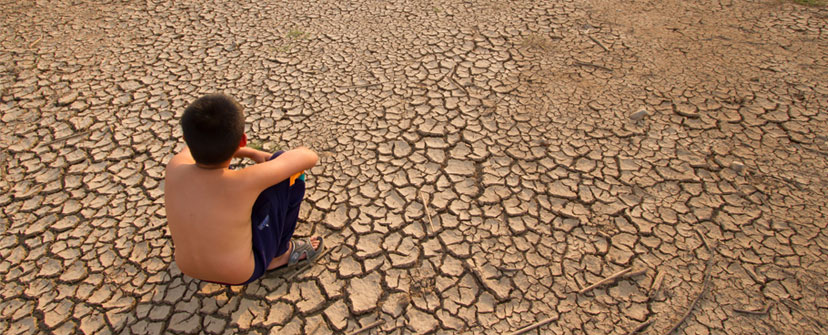Improving the rule of law in the Asia-Pacific; an essential element for a better climate
28 June 2016 | Arjuna Dibley and Martijn Wilder AM, Baker & McKenzie

In December 2015, 195 countries came together at the annual UN climate change conference and agreed to the Paris Agreement, a new international treaty which sets out the framework by which countries will take action to avoid climate change. The objective of the treaty is to try to hold global temperatures to well below 2 degrees above pre-industrial temperatures. In setting this goal, the purpose of the Paris Agreement is to avoid the worst of the calamity predicted to affect countries from a warmer climate. It is a lofty but important goal, the achievement of which will be particularly significant to developing countries least able to manage such disasters. Despite this lofty and important goal, the Paris Agreement can only be achieved if substantial thought and effort is put into overcoming some persistent problems with the rule of law in many developing countries, including those in Asia-Pacific.
The negotiators who developed the Paris Agreement did so with a view of overcoming some of the previous pitfalls of international climate change agreements. The Kyoto Protocol for instance (which is due to be replaced by the Paris Agreement in 2020), has only had a modest impact on reducing greenhouse gas emissions because, among other problems, it did not place obligations on all countries to take action on climate change. Instead, the Protocol placed obligations on certain developed nations to reduce emissions, a position which now does not reflect the realities of the modern global economy. China, for instance, now the world's largest emitter, is not subject to reduction obligations under the Protocol. The drafters of the Paris Agreement thus took a different approach, placing obligations on all countries - developed and developing - to put forward "nationally determined contributions" setting out their emissions cuts and the pathway that they will take to achieve those emissions cuts. Countries are obliged to go through an UN-supported process of continual review, ratcheting up their level of ambition during the term of the Paris Agreement.
This new "bottom-up" structure has much to commend it. Climate change is a global problem, and one that requires global action. A structure which requires all countries to be actively part of a global solution is a sound approach to take, giving agency and creating buy-in for all countries of the world. There is a down-side to this structure though. That is, it assumes that all countries will have both the political will and capacity to introduce legal and policy frameworks on climate change that are effective at reducing emissions. It is at this point that climate change intersects sharply with the important of rule of law, particularly in the Asia-Pacific.
"The objective of the treaty is to try to hold global temperatures to well below 2 degrees above pre-industrial temperatures. In setting this goal, the purpose of the Paris Agreement is to avoid the worst of the calamity predicted to affect countries from a warmer climate."
The Asia-Pacific region, while marked by recent rapid economic development, is also marred by underdeveloped rule of law. Transparency International ranks South Asia as amongst the world's most corruption ridden regions, for instance, and in Southeast Asia, only Malaysia and Singapore score above 50 out of 100 on the organisation's Corruption Perceptions Index (where 100 is very clean and 0 highly corrupt). Research on corruption has shown clearly that in countries where rule of law is underdeveloped economically powerful individuals and corporations are able to evade regulatory obligations through bribery, corruption and patronage connections. In this context, creating effective laws and policies to reduce greenhouse gas emissions will be challenging.
Effective climate change law and policy requires that regulators are equipped with the authority and capacity to compel corporations and individuals to change their behaviour to reduce greenhouse gas emissions. This may come in many forms, by directly regulating out certain activity which is highly emissions intensive, by creating incentives to reduce emissions by adopting new technologies or by developing market emissions to reduce such emissions. Each of these approaches would (and have proven to) be undermined in contexts where rule of law is poor. This connection is easily demonstrated by the example of Indonesia
Indonesia is Southeast Asia's largest emitter, and a significant proportion of such emissions comes from its forests. Between July to November 2015, forest fires in Indonesia released over 1.6 billion metric tons of carbon dioxide, emitting more on several days during that period than the entirety of the United States economy. Forest fires in Indonesia are mostly intentionally lit by large commercial forest concession holders who use fire as a cheap way of clearing forested land for agricultural purposes. Indonesia does have a strict legal framework criminalising the use of fires for land clearing. For instance, Law 41 of 1999 on Forests, the main law on forests in Indonesia, includes a prohibition on "burning down forests", punishable by up to a five year term of imprisonment. Despite the existence of these laws, they are rarely enforced, due to a myriad of rule of law problems, including corruption and underdeveloped capacities and resources of the regulators.
Under the Paris Agreement framework, Indonesia has pledged to reduce its emissions by 29 percent by 2030 and a conditional reduction of 41 percent with international assistance and cooperation. If this goal is to be realised, a significant proportion of these reductions must come from Indonesia's forestry sector. This will only happen if the country is able to address the significant underlying rule of law problems in the country. Some innovative approaches are now being introduced to address this specific problem. For instance, Singapore has introduced an extra-territorial law in which companies listed in Singapore and operating in Indonesia that flout forest fire laws, can be criminally prosecuted under Singaporean law. Nonetheless, the issue of forest fires in Indonesia will take a long time to resolve. Without substantially more effort and energy dedicated to addressing this problem and the rule of law deficiencies in the region more generally, the lofty ideals of the "well below 2 degree" goal of the Paris Agreement will struggle to come to fruition.
 LexisNexis
LexisNexis
